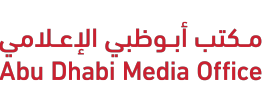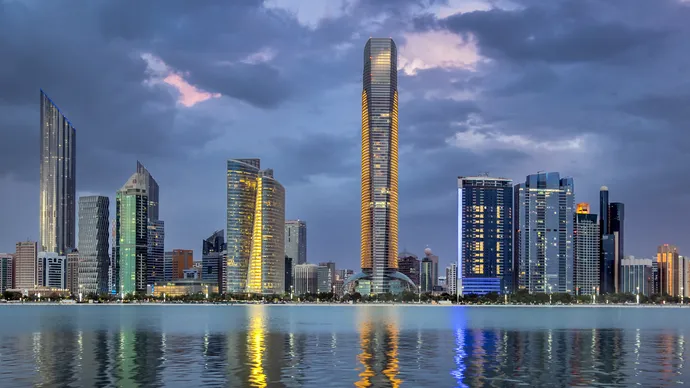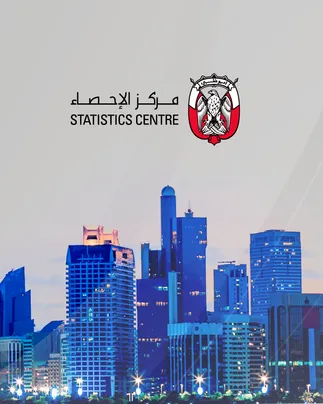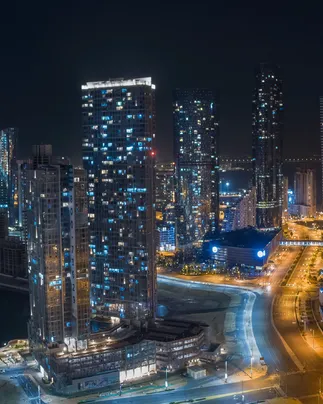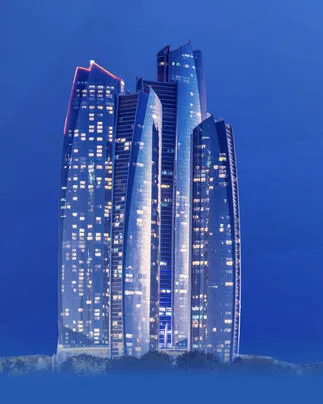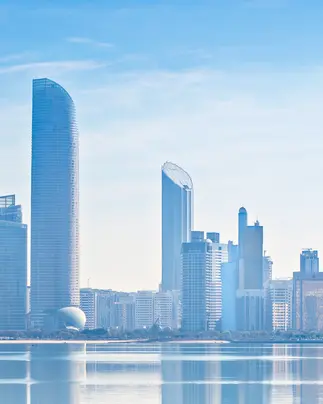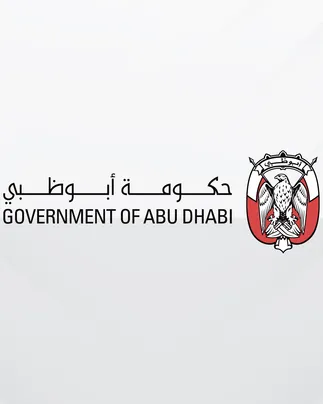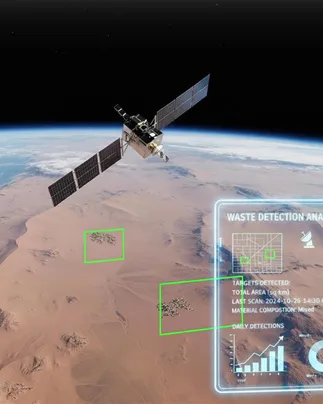The Statistics Centre – Abu Dhabi (SCAD) has announced that the emirate’s real Gross Domestic Product (GDP) reached AED306.3 billion in the second quarter of 2025, representing a 3.8 per cent increase compared with Q2 2024. The non-oil economy grew 6.6 per cent year-on-year to the highest quarterly value at AED174.1 billion, and for the first time in a second quarter accounted for 56.8 per cent of total GDP.
In the first half of 2025, Abu Dhabi’s economy continued its upward trajectory, with real GDP reaching AED597.4 billion, reflecting a 3.63 per cent growth compared to the same period in 2024. Non-oil activities demonstrated even stronger momentum, expanding by 6.37 per cent year-on-year to AED337.6 billion.
This performance underscores the emirate’s sustained diversification efforts, the growing contribution of non-oil sectors, and the resilience of Abu Dhabi’s economic model and highlight the effectiveness of strategic initiatives that continue to support investment, innovation, and the creation of high-value jobs.
His Excellency Ahmed Jasim Al Zaabi, Chairman of the Abu Dhabi Department of Economic Development (ADDED), said: “The consistent growth of Abu Dhabi’s GDP over the past few years underscores the emirate’s position as a dynamic economic hub guided by an ambitious vision, a multi-dimensional strategy, and detailed roadmaps to accelerate economic growth and diversification.”
“Our non-oil sectors, which accounted for 56.8 per cent of GDP and achieved a 6.6 per cent annual growth in Q2-2025 driven by key sectors such as manufacturing, construction, finance, real estate, and ICT, have emerged as leading drivers, underpinned by a globally competitive business ecosystem, and world-class infrastructure.
“Our Falcon Economy is building a future-ready economy; one that is diversified, resilient, inclusive, and globally competitive. The consistency of our GDP results underscores the effectiveness of Abu Dhabi’s progressive initiatives and forward-looking policies. Our priority remains building an innovation-led, high value economy, that expands private sector opportunities and enable all segments of society to realise their full potential.”
His Excellency Abdulla Gharib Alqemzi, Director General of SCAD, said: “The consecutive records achieved in Q1 and Q2 2025 highlight not only economic strength, but also the effectiveness of policy planning grounded in high-quality data. As the government advances its AED13 billion digital strategy to become the world’s first AI-native government by 2027, SCAD is playing a central role in enabling this transition through timely, reliable, and integrated statistics. From population dynamics to sectoral performance, our data will continue to serve as a foundation for inclusive policymaking, innovation-driven development, and sustained economic progress.”
Manufacturing remained the largest non-oil contributor, reaching AED30.1 billion and accounting for 9.8 per cent of total GDP. The sector grew 3.1 per cent year-on-year and achieved its highest quarterly value on record. This reflects the success of the Abu Dhabi Industrial Strategy (ADIS), which has driven a 23 per cent increase in industrial GDP since 2022 and increased the number of industrial enterprises by 19.4 per cent. Investments in advanced industries and robust licensing have positioned Abu Dhabi as a regional manufacturing hub.
Construction activities rose 9.7 per cent to AED30 billion—another record high. Representing 9.8 per cent of GDP, the sector's expansion is driven by major infrastructure and housing initiatives. Notable innovations include the AI-powered Binaa platform, which cuts building permit times by up to 70 per cent. The 2025 Abu Dhabi Infrastructure Summit further showcased public-private collaboration with 15 strategic agreements signed.
Finance and insurance activities expanded 10.3 per cent to a record AED21.8 billion, contributing 7.1 per cent of GDP, underpinned by Abu Dhabi’s growth as a regional and global financial centre.
In H1- 2025, Abu Dhabi Global Market (ADGM) reported a 42 per cent increase in assets under management (AUM), 47 per cent rise in new business licenses, and a 42 percent increase in total number of operational entities, reaffirming its position as the region’s largest and fastest-growing international financial centre (IFC). In H1-2025, the Abu Dhabi Securities Exchange’s (ADX), total trading value rose by 33.5 per cent and foreign net investment rose by 99.5 per cent, reflecting the growing confidence of international investors in Abu Dhabi’s economy and reinforcing the emirate’s strategy to lead in financial services, fintech, and capital markets.
Real estate activities reached AED11.7 billion in Q2 2025, marking a 10.2 per cent annual increase and another quarterly record. The sector accounted for 3.8 per cent of GDP and benefited from strong population growth and foreign investor confidence. In H1-2025, real estate transactions rose 39 per cent, with foreign direct investment in the sector, by investors from 85 nationalities, increasing by 3.3 per cent, following a 125 per cent growth in 2024.
Information and communications activities reached AED8.6 billion, growing 6 per cent year-on-year and contributing 2.8 per cent of GDP—its highest quarterly value. This reflects the momentum generated by the emirate’s AED13 billion Digital Strategy 2025–2027, which aims to automate government services and deploy over 200 AI solutions. The sector’s performance exemplifies how digital infrastructure and innovation policy drive sustainable growth.
The wholesale and retail trade sector expanded 1.6 per cent year-on-year, contributing AED16 billion or 5.2 per cent of GDP. This steady performance is fuelled by rising consumer spending, tourism recovery, and strong non-oil trade, up 34.7 per cent in H1- 2025, with exports surging 64 per cent compared with H1 2024.
Professional, scientific, and technical services, including administrative support, grew 10 per cent to AED9 billion, making up 2.9 per cent of GDP, signalling increasing demand for specialised services and a shift toward a knowledge-based economy.
Transportation and storage expanded 7.5 per cent to AED 7.5 billion, driven by logistics hubs like KLP21 at KEZAD. Electricity, gas, and water supply recorded the highest growth at 12.5 per cent, supported by long-term energy strategies. Arts, recreation, and other services also grew 12 per cent, reflecting renewed cultural momentum.
Building on the strong momentum recorded in Q1 2025, the second quarter results reinforce the consistency and resilience of Abu Dhabi’s economic performance. In both quarters, leading non-oil sectors such as manufacturing, construction, finance, real estate, and ICT reached unprecedented values, highlighting the strength of diversification efforts.
These successive results illustrate a robust upward trajectory driven by policy clarity, strategic investments, and forward-thinking governance. As Abu Dhabi accelerates its digital transformation, anchored by Abu Dhabi’s ambition to become the world’s first AI-native government, its economic strategy continues to build a resilient, inclusive, and future-ready economy.
